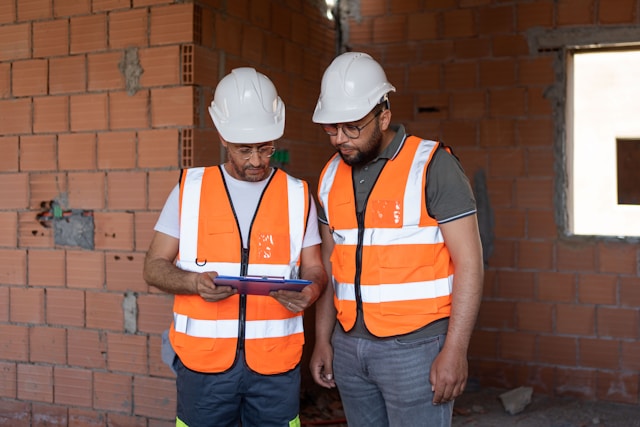
Construction projects are complex undertakings that require more than just tools, materials, and a detailed plan; they necessitate exceptional leadership capable of coordinating diverse teams, ensuring rigorous safety standards, and delivering quality results on schedule. Effective leadership in construction not only provides the seamless execution of tasks but also bridges the gap between success and potential setbacks by fostering transparent communication, maintaining a high level of adaptability to challenges, and inspiring collaboration among team members. Leaders who prioritize these qualities drive measurable results, build trust within their teams, and set the foundation for long-term project success and organizational growth.
The Core of Effective Leadership in Construction
Leadership in construction extends far beyond simply issuing orders; it is a multifaceted role that involves empowering team members to perform at their best, prioritizing their safety on every job site, and strategically aligning all efforts toward achieving shared goals. Effective construction leaders understand the importance of blending advanced technical expertise with strong interpersonal skills to manage diverse teams, ensuring everyone feels valued and motivated to contribute to the project’s success. By fostering a culture of trust, promoting collaboration, and maintaining open lines of communication, construction leaders drive efficiency and create an environment where challenges are met with innovative solutions. Their ability to inspire, adapt, and lead by example is pivotal in ensuring the seamless execution of construction projects and achieving long-term organizational success.
Clear Communication Drives Success
Successful construction projects rely heavily on communication. Leaders should establish open channels for feedback and ensure instructions are clear and precise. Regular meetings and updates help everyone stay on track, minimizing errors and misunderstandings.
Adaptability in Dynamic Environments
The construction industry is unpredictable. Leaders who adapt to changing circumstances can maintain project momentum even when unexpected challenges arise. Whether weather delays or supply chain disruptions, staying flexible ensures progress without compromising quality.
Building Trust and Collaboration
Trust is the foundation of any strong team. A leader’s ability to foster collaboration among team members often determines a project’s success. Encouraging mutual respect and celebrating individual contributions can significantly enhance teamwork and productivity.
Emphasizing Team Accountability
A great leader ensures every team member understands their role and responsibilities. By promoting accountability, leaders create a culture of reliability and mutual respect. When everyone feels valued and responsible, the entire team becomes more efficient.
Encouraging Problem-Solving
Empowering team members to suggest solutions can lead to innovative approaches and better project outcomes. Leaders should encourage open dialogue to address challenges collectively, fostering a sense of ownership among the team.
Safety and Compliance: A Leadership Priority
Safety is paramount in construction. A leader must ensure compliance with regulations and promote a safety-first mindset among the crew.
Training and Awareness
Regular safety training keeps teams updated on best practices. Leaders should prioritize continuous learning to mitigate risks and enhance overall awareness.
Leading by Example
Construction leaders who actively follow safety protocols set the tone for their teams. Leading by example reinforces the importance of safety and motivates others to follow suit.
Strategies for Enhancing Leadership Skills
Even experienced leaders can benefit from sharpening their skills. By focusing on professional development, they can adapt to new challenges and lead their teams more effectively.
Continuous Learning
Construction techniques and leadership methods evolve. Staying informed through workshops, certifications, and industry events can keep leaders ahead of the curve.
Mentorship and Feedback
Seeking mentorship or providing it to others can refine leadership qualities. Constructive feedback helps leaders identify areas for improvement while fostering growth within the team.
Technology’s Role in Leadership
Modern technology is transforming how construction teams operate. Leaders embracing digital tools can streamline processes, improve communication, and enhance efficiency.
Leveraging Project Management Software
Digital tools like project management software enable leaders to track progress, assign tasks, and meet deadlines. These platforms also enhance transparency across teams.
Integrating Safety Tech
Wearable devices and monitoring systems can help leaders maintain a safer work environment. By utilizing these tools, leaders can proactively address potential hazards.
Construction team leadership is an ever-evolving discipline that demands a delicate balance of technical expertise, advanced interpersonal skills, and a high degree of adaptability to address the dynamic challenges of the industry. Effective leaders go beyond merely managing tasks; they create an environment that fosters open communication, builds trust among team members, and leverages technological advancements to streamline processes and improve efficiency. Leaders can drive remarkable results that exceed expectations by inspiring their teams to collaborate effectively and overcome obstacles. In the construction industry, every project, regardless of scale or complexity, begins and ends with strong leadership, making it the cornerstone of sustainable success and a critical factor in achieving long-term growth and client satisfaction.